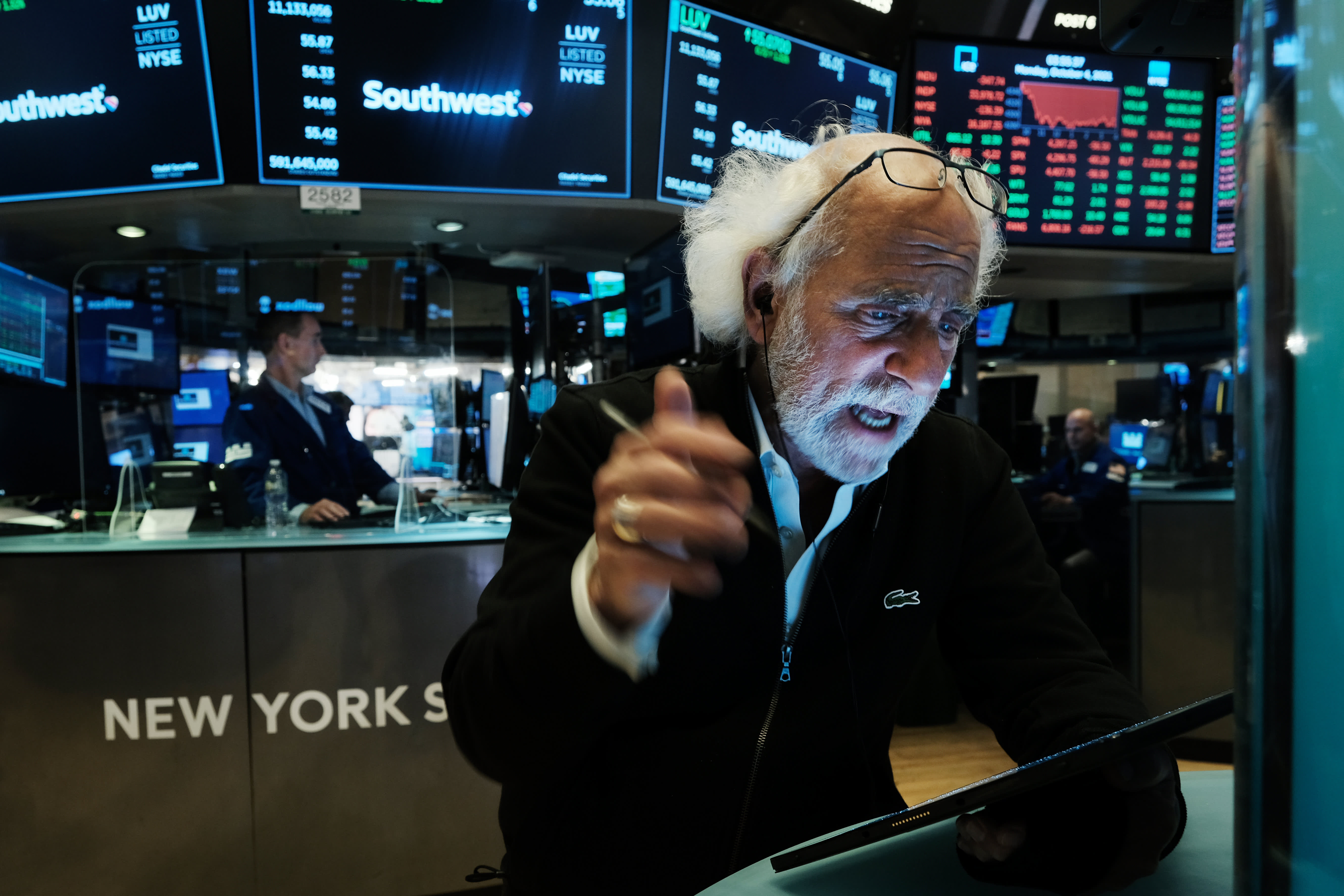Dow futures jump 270 points in relief rally as it appears Congress will avert a government default

U.S. stock futures jumped on Thursday, continuing Wednesday’s midday comeback as Congress appeared to near a deal that would raise the debt limit in the short term and avoid a disastrous government default.
Dow Jones Industrial Average futures rose 274 points, or 0.8%. S&P 500 futures gained 0.9% and Nasdaq 100 futures jumped 1.1%. The Dow recovered a 459-point loss on Wednesday and closed more than 100 points higher.
A broad range of stocks were higher in premarket trading. Tech shares Twitter, Nvidia and AMD were more than 1% higher. GM and Southwest Airlines also rose. Costco shares added 1% after reporting better-than-expected September sales. Facebook gained after JPMorgan said it was time to buy the recent dip on the stock.
On Tuesday, Treasury Secretary Janet Yellen had warned that they U.S. should “fully expect” a recession if Congress couldn’t reach an agreement on the debt ceiling, leading to an unprecedented government default. Then during the trading day Wednesday, Senate Minority Leader Mitch McConnell offered a short-term suspension proposal to Senate Democrats. They were likely to accept the deal that would raise the debt ceiling by a specific amount and allow the government to keep operating until some point in December.
“A temporary deal should help reduce debt ceiling related market volatility over the next few weeks as attention shifts towards December,” wrote Mark Haefele, chief investment officer of global wealth management at UBS.
Following the news on Wednesday, the Dow reversed and ended more than 100 points higher. The S&P advanced 0.4%, after falling as much as 1.27%. The Nasdaq Composite rose 0.5%, after dropping as much as 1.2%.
“While we believe a debt ceiling deal will get done, politicians may need some market ‘motivation.’ This could keep near-term volatility elevated,” said Christopher Harvey, senior equity analyst at Wells Fargo Securities. “We view yesterday’s offer from Senate GOP leadership not as a durable solution, but rather as an invitation to stave off a potentially immediate disaster — a small positive.”
October has been an especially volatile month, driven by uncertainty about U.S. fiscal and monetary policy and supply chain constraints, although economic data suggests the economy has already started to climb out of the delta-driven summer slump, according to Goldman Sachs’ Chris Hussey. Markets may also be treading lightly heading into the third quarter earnings season, which begins next week, he added.
After Wednesday’s reversal, the S&P 500 and the Dow are now in the green slightly for the week. The Nasdaq Composite is still off by 0.4%.




